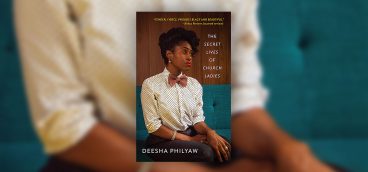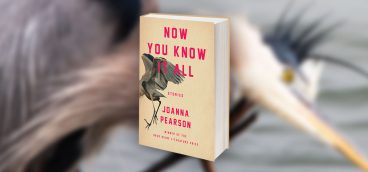America 2.0: An Old Novel Idea

When I was serving in the U.S. Army in the early 1970s, I spent a lot of time patrolling in my Military Police Jeep and boring myself silly. Being a cop is a bit like being an airline pilot: hours of boredom punctuated by moments of stark terror.
To relieve the boredom, I wrote a futuristic novel—thankfully lost—about an experiment in replacing the U.S. liberal democracy with something more effective.
The novel was occasioned by the political chaos surrounding the war in Vietnam, which had disrupted so many of our lives and ended so many others. The conceit of the novel was that, far in the future, The World’s Oldest Man was being interviewed by a young woman journalist about what it was like to live through the experiment.
The novel opened with actual history, namely, President Lyndon Johnson’s narrow victory over Eugene McCarthy in the 1968 New Hampshire primary. In reality Johnson shocked the nation by announcing that he would not seek reelection.
But in the novel, Johnson refused to drop out and was eventually reelected by beating McCarthy and Hubert Humphrey in a tight three-way race. Johnson received 51 percent of the vote, compared to 35 percent for Humphrey and 17 percent for McCarthy. No one had enough Electoral College votes to win, so the election was thrown into the House of Representatives.
Johnson had served in Congress since 1937 and he easily persuaded the House to give him the victory. Then, once his reelection was secure, Johnson doubled down on Vietnam, increasing troop strength and expanding the war into Laos and Cambodia.
The main protagonists in the novel were a power couple, George and Jenny Leader. George was a nuclear physicist at Harvard whose work, all completed before he was thirty-five, had made him a perennial Nobel Prize candidate.
But George was also interested in the practical world. One day, at the age of thirty-six, George decided that he was enraged by the many idiocies of the Cambridge, Massachusetts school system and he ran for the school board. To his own amazement, he won.
The school district had been dominated by PhDs from the Harvard Graduate School of Education and, almost every year, had adopted some faddish new education gimmick. The result was that students graduated feeling terrific about themselves but knowing almost nothing.
George turned the system completely around, making it a model for school systems across the country. That raised his profile enough that he ran for Governor of Massachusetts and won that election as well. He then ran for U.S. Senate and, when the novel began, was serving his second term.
Back at Harvard, George had met a bright young assistant professor of English named Jenny and they had married. Some years later, Jenny was elected chair of the department of English, the youngest chair in the department’s history.
The evening after Jenny’s election, her proud husband took her out to dinner to celebrate. Seated at their favorite table at their favorite Alsatian bistro in Harvard Square, George raised a glass of vintage gewürztraminer and proposed a toast to Jenny’s success.
But, to George’s astonishment, Jenny announced that she wouldn’t accept the promotion. Instead, she planned to start a business.
A bewildered George tried to think if he had ever known an English prof who had started a business. Or one who even knew what a business was. But Jenny was obviously serious and she spent the rest of the evening outlining her idea.
When George and Jenny married, they each had a subscription to a book-of-the-month club. But they quickly agreed that most of the books they received were of little interest—nice for a relaxing weekend on Nantucket, maybe, but hardly stimulating reading.
Since Jenny was a graduate of St. John’s College (the “Great Books” school), they switched to Folio Editions. The books that arrived were beautifully made and usually came with their own slipcovers—some even came in a Solander box. But gradually they realized that, between the two of them, they had already read almost all the books.
And that’s what gave Jenny her idea—she would launch the Engaged Intellectual’s Book Club, and she would personally select each month’s book for its intellectual stimulation. To everyone’s surprise, including Jenny’s, the new book club proved to be an immediate success. It seemed that everyone in America who considered themselves to be intellectuals had bought a subscription.
Eventually, managing such a fast-growing business proved to be too much for Jenny—she was, after all, still an English prof at Harvard—and the business was sold for multiple millions of dollars to the Book-of-the-Month Club.
George and Jenny were now not just extremely smart people who had built extremely successful careers, and they weren’t just a politically powerful couple. They were also quite rich.
George bought a fine brownstone in Georgetown and lived there during the week, visiting Jenny in Cambridge every other weekend. In-between, Jenny would spend the weekend with George in Georgetown.
Gradually, the leaders became known for their Georgetown soirees, which were reputed to be the most interesting dinner parties in Washington, D.C. These soirees were always held early on Sunday evening and often extended into the wee hours.
Hundreds of people had attended the soirees, but to remain on the guest list you had to be a) interesting and b) not ideological. Few guests met both criteria and a very great many guests met neither of them.
At each soiree, Jenny would launch the conversation the same way her seminars had been launched at St. John’s College—she would pose an opening question. Sometimes the conversation would revolve around that question all night long, and sometimes it would veer off into other subjects.
On that fateful evening, Jenny had posed this question: What are the worst aspects of the U.S. political system? The question was phrased as neutrally as Jenny could manage, but what she really meant, and what everyone at the soiree that evening knew she meant, was: How could the U.S. political system be so screwed up as to allow that crazed maniac Lyndon Johnson to be reelected?
To make a long novel short, that discussion, among a mere thirteen people, evolved into a large task force of people determined to interfere with Lyndon Johnson’s war strategy. In the process, they would end up redesigning the American government.





